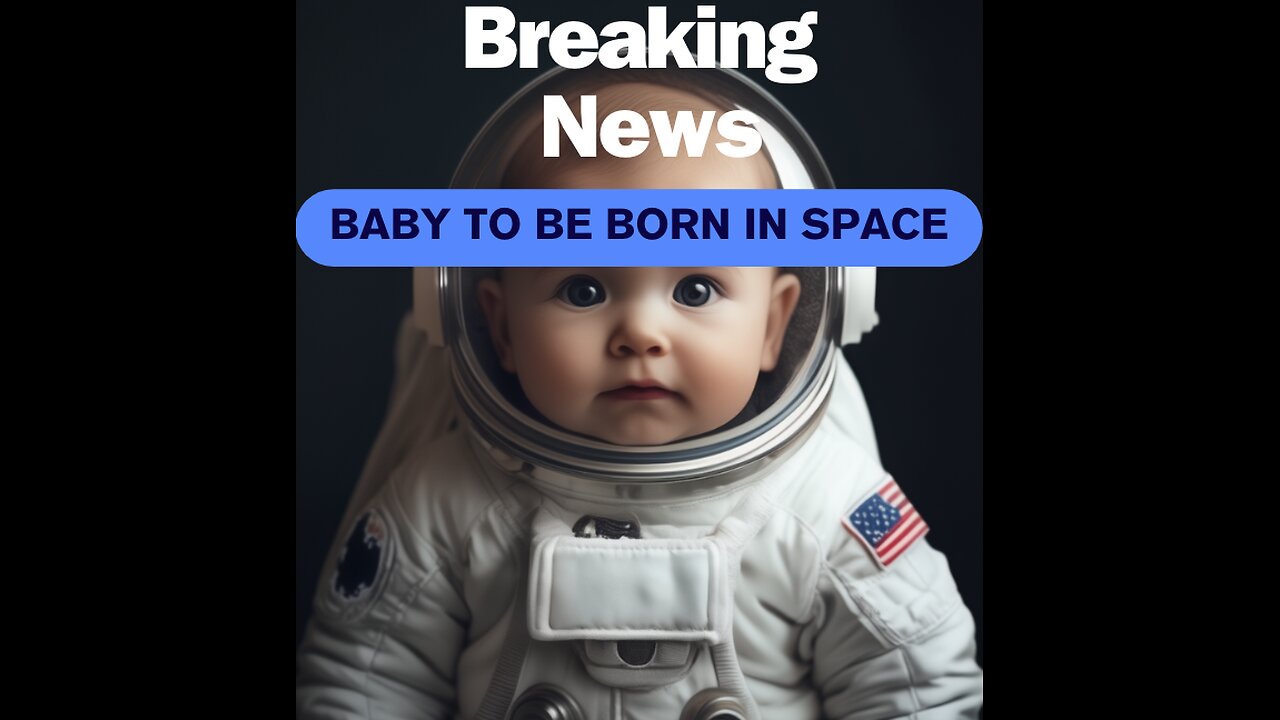Premium Only Content

Extraterrestrial Pregnancy: The Ultimate Adventure or Ultimate Risk?
In a groundbreaking venture that challenges conventional wisdom, SpaceLife Origin, a biotech company, is spearheading a bold mission: to enable the birth of the first (technically) extraterrestrial child. Departing from traditional maternal norms, they propose sending a pregnant woman into the exosphere to give birth, heralding a new era in human reproduction.
Founded on the premise of humanity's imminent colonization of other planets and Earth's escalating environmental perils, SpaceLife Origin envisions a future where space births become commonplace. Their visionary agenda comprises a series of meticulously planned missions, culminating in the historic birth of a child beyond Earth's confines by 2024.
The ambitious endeavor commences with Mission Ark, slated for 2020, offering individuals the chance to safeguard their genetic legacy by storing their "Seeds-of-Life" in a satellite orbiting Earth. This pioneering initiative assures a secure repository for future generations, shielded from terrestrial catastrophes.
Following suit, Mission Lotus, scheduled for 2021, embarks on a revolutionary attempt to conceive a human in space. Utilizing human egg and sperm cells launched to a space station, scientists aim to artificially create an embryo, laying the groundwork for extraterrestrial gestation.
Ultimately, Mission Cradle aims to realize the historic birth of a human being in space, marking the advent of humanity's first "extraterrestrial" baby. However, logistical challenges abound, raising questions about the safety and feasibility of such a feat.
Dr. Egbert Edelbroek, SpaceLife Origin's Chief Strategy & Innovation Officer, encapsulates the profound significance of this endeavor, stating, "It's a small step for a baby, but a giant baby-step for mankind." Yet, amid aspirations of interplanetary colonization, uncertainties linger regarding funding, partnerships, and ethical implications.
As SpaceLife Origin navigates uncharted territory, garnering support from entities like the tentative space nation Asgardia, profound questions emerge about the societal implications and inclusivity of such ventures. Despite the allure of space exploration, the quest for cosmic advancement prompts reflection on its broader societal impact and ethical considerations.
-
 1:33
1:33
Conspiracy Chronicle
21 days agoTrump Declares War on Big Tech Censorship with Bold FCC Pick
951 -
 8:50:58
8:50:58
Right Side Broadcasting Network
1 day ago🎅 LIVE: Tracking Santa on Christmas Eve 2024 NORAD Santa Tracker 🎅
302K44 -
 2:48
2:48
Steven Crowder
1 day agoCROWDER CLASSICS: What’s This? | Nightmare Before Kwanzaa (Nightmare Before Christmas Parody)
292K12 -
 33:49
33:49
Quite Frankly
1 day agoThe Christmas Eve Midnight Telethon
102K22 -
 2:12:46
2:12:46
Price of Reason
23 hours agoAmber Heard BACKS Blake Lively Lawsuit Against Justin Baldoni! Is Disney CEO Bob Iger in TROUBLE?
56.9K23 -
 1:01:17
1:01:17
The StoneZONE with Roger Stone
18 hours agoChristmas Edition: Why the Panama Canal is Part of the America First Agenda | The StoneZONE
127K47 -
 18:12:15
18:12:15
LFA TV
1 day agoLFA TV CHRISTMAS EVE REPLAY
142K18 -
 13:32
13:32
Scammer Payback
19 hours agoChanging the Scammer's Desktop Background to his Location
12.2K3 -
 4:21
4:21
BIG NEM
21 hours agoNikola Tesla's Secret to Cultivating Creativity & Genius
8.76K1 -
 15:03
15:03
The Anthony Rogers Show
1 day agoAnthony Rogers - Live at Cusumano's Pizza (Upstairs)
6.96K1